| This article may require copy editing for grammar, style, cohesion, tone, or spelling. You can assist by editing it. (October 2024) (Learn how and when to remove this message) |
 | |
| Status | Active |
|---|---|
| Founded | 1942; 82 years ago (1942) |
| Founder | |
| Country of origin | India |
| Headquarters location | 5E, Rani Jhansi Road, New Delhi – 110055, India. |
| Key people | Sudhakar Reddy Bhalchandra Kango Narayana Kankanala Atul Kumar Anjan |
| Publication types | Books |
| Nonfiction topics | History, Politics, Marxism, Literature, Children's Literature, philosophy |
| Official website | www.pphbooks.net |
People's Publishing House (PPH) is an Indian publisher. It is headquartered in New Delhi. PPH publishes books on topics including politics, history, art and culture, novels, children's literature, autobiographies and others, but primarily caters to Marxist and progressive literature. PPH was officially established in 1942, when the British Indian government legalised the Communist Party of India. PPH was incorporated as a trust in 1947. The current publishers of PPH are Sudhakar Survaram Reddy, Bhalchandra Khanderao Kango, Narayana Kankanala and Atul Kumar Anjan
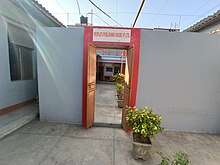
Presently, apart from its headquarters at Rani Jhansi Road, in New Delhi, PPH has three other branches in Delhi, that is in Jawaharlal Nehru University, Connaught Place Showroom, and at CPI Headquarters at Ajoy Bhawan. Outside Delhi, PPH has branch offices in Lucknow and Ranchi as well. There is a People's Book House, operating in Patna also. In Maharashtra, PPH was rechristened as "Lok Vangmay Griha (House of People's Literature in Marathi)", which is located at Bhupesh Gupta Bhavan, Leningrad Chowk, Mumbai. Apart from its own Printing Press at Prabhadevi Mumbai, It also operates a book shop "People's Book House" at Horniman Circle of Mumbai city. In Rajasthan, there exists "Rajasthan People's Publishing House (RPPH)", which is a separate entity closely linked with Communist Party of India. Narendra Acharya who is on the board of directors of RPPH is State Secretary of Communist Party of India's, Rajasthan State Council. RPPH was established in 1978, and is located at Chameliwala Market in state capital Jaipur.
They also publish works by foreign Marxist authors from time to time, with special copyright arrangements with the original publishing houses. In 1980's, PPH and RPPH had jointly published Soviet Books in Hindi, with Raduga Publishers Moscow. These books were printed in Soviet Union, but carried the names and logo of these three publishing houses.
PPH was a major importer and distributor of Soviet books in India between 1943 and 1995.
History
Although the Communist Party of India (CPI) was established as a political party in October 1920, it was constantly suppressed by the British Indian government and had to work as an underground movement. In June 1941, Adolf Hitler attacked the USSR and CPI changed its strategy in viewing World War II not as an "imperialistic war" but as a "people's war against fascism". It also decided to support the Allied powers so as to defeat Nazi Germany. In July 1942, the British rulers of India legalised the Communist Party of India in return for its support to the British war effort. With this, CPI was also permitted to import books from the USSR and to publish its own party literature. Thus, People's Publishing House (PPH) was started as a publishing and book distributing arm of the Communist Party of India in 1942. It was officially incorporated as a private limited company on 12 March 1947.
Although, officially, PPH was established in 1942, after the CPI was legalised, the underground "Communist Party of India" had already published booklets under the name "People's Publishing House" since 1921. In 1921 it published a 43 pages booklet titled "Thesis on the organization and Structure of the communist Parties". This booklet was also published in the same year in Hindi language as well. In 1935, PPH published "Frank Verulam's" 46 pages booklet titled "Imperialism and the People". In 1939, PPH published Dona Torr’s 31 pages booklet "From Imperialist War to People's War".
In 1942, CPI rented a three-storey house "Raj Bhuvan" on the Sandhurst Road (now Sardar Vallabhbhai Patel Marg) of Bombay. CPI's Party Headquarters (popularly known as PHQ) was established in this building. Several senior leaders of CPI and other workers used to live and work in this PHQ along with their families. People's Publishing House (PPH) and Hand Composing section of New Age Printing Press was also housed in this Raj Bhuvan building. Hand Composing department of New Age Printing Press was located on the ground floor of Raj Bhuvan. Nearby on the "Khetwadi Road" another half portion of a building known as "RK Building" and top storey of one house was also rented by CPI. An English Linotype machine was established on the Khetwadi Road building, and New Age Printing Press was also housed there. PPH's retail office was established on the third floor of this building. On the First Floor of "RK Building", Photographer Sunil Janah used to have a Darkroom.
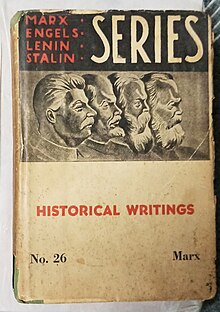
PC Joshi, the then General Secretary of CPI had started publication of its English Mouthpiece "People's War" and its Hindi edition "Lok Yuddh (लोक युद्ध)" on 2 October 1942, that was published from CPI Headquarters at "Raj Bhuvan" and printed from "New Age Printing Press" on "Khetwadi Road". After the end of Second World War, B.T. Ranadive had decided to change the name of "People's War" to "People's Age". In its formative years PPH only published Marxist Classics, Literature belonging to Second World War, and one or two story books by Soviet Writers. The first book probably came out of the press in November 1942, and it was Gangadhar Adhikari’s "From Peace Front to People's War". The First Edition that was published in November 1942 was in "Booklet Form". The Second Edition published in June 1944 was an enlarged one. Adhikari was the former General Secretary of CPI, who served on this position between 1933 and 1935. In 1942, PPH also published a 46 pages booklet by "Sharaf Athar Ali" titled "Against Hitler – The Voice of Free Germany". Mikhail Sholokhov’s story "Hate","Elena Kononenko's" story "Tanya" and Nikolai Tikhonov’s "Tales of Leningrad" were published by PPH in 1943, as separate booklets. Tanya was also translated into Gujrati and Urdu. Its Urdu translation was done by Ali Sardar Jafri. In 1943, PPH also reprinted "The Army of the Soviet Union" by "Prof. I Minz". This book was originally published a year before in 1942 from Moscow.
From 1943 onwards, PPH started to distribute Soviet Books into India. "National Book Agency (NBA)" which was based in Calcutta had started distributing Soviet Books in the year 1945. NBA was established by noted Marxist leader Muzaffar Ahmad along with his colleagues "Rebati Burman" and "Suren Kar" in 1939. NBA is still functioning in the present day from its historic premises "12 A, Bankim Chatterjee Street, Calcutta". Both PPH and NBA were the only distributor of Soviet Books in British India.
In 1944, PPH published Otto Kunsinen’s "Finland Unmasked", which was a 35 pages booklet and available for 6 Annas; Friedrich Engels’s "Ludwig Feurbach", and, "New Powers of the Soviet Republics". In the same year it also published PC Joshi’s booklet "Among Kisan Patriots".
In 1944 PPH started publication of a two volumes series of "Historical Writings" of Karl Marx and Friedrich Engels. It was the first Indian Edition of Marx and Engels's works. Volume 1 of this series was published in 1944 while, Volume 2 was published in the year 1945. In 1944, PPH also published a 459 pages book titled, "The History of the October Revolution" that was edited by Maxim Gorky, Vyacheslav Molotov, Kliment Voroshilov, Sergei Kirov, Andrei Zhdanov and Joseph Stalin.
Just a few months before the Indian Independence, PPH was organised as a Trust on 12 March 1947, and it became a Private Limited Company. In the same year PPH established its branch in Lahore city, which became a big publishing house of Pakistan, after Independence. A branch was established in Lucknow as well. Another entity was established with the name "People's Book House" in Rangoon city of Burma.
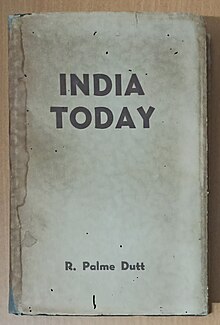
In several other cities of India, Nagpur, Poona, Patna, Trichur, Allahabad and Calicut, several "People's Book House (PBH)" were established in 1947 for the sale of Soviet Books and Magazines. In Vijaywada also, a "Prajashakti Publishing House" was established in 1947. Prajasakti Book House is a very big publisher and bookseller of Andhra Pradesh and Telangana region of the present day. In 1947 PPH published the First Indian Edition of the book "India Today" by R. Palme Dutt.
In those days, all the People's Book Houses, National Book Agency (NBA) and Prajasakti Publishing House had directly served as the branches of "People's Publishing House". Although in the present day, NBA and Prajasakti are no longer associated with PPH, and are currently associated with Communist Party of India (Marxist), which got split from the CPI in 1964.
CPI started a Telangana Rebellion for many years preceding the Independence. This movement gained so much momentum that by 1948, most of the CPI's important leaders went underground to avoid arrest. PPH was not flourishing much in this era, but to distribute books and other literature in Delhi, two volunteers "Atul Sawani" and "Madan Bakaya" arrived from Bombay, and established a book shop "Delhi Book Centre" on Irwin Road (now Baba Kharak Singh Marg) of Connaught Place. This area was a very peaceful market of Delhi in those days, and intellectuals of Delhi often roamed in this market to search books. So for CPI, having a book shop in this area was of important value. But because of Telangana Rebellion, this was done very discretely and in different names to avoid attention of Police. In 1950 a "Marx House" was established by CPI in Connaught Place, which was a meeting place for intellectuals and Soviet Books and Periodicals were available here for sale. It functioned for a year or two only. CPI also opened a third book shop "Minerva Book Stall" in Connaught Place in those days. During this era of Telangana Rebellion the offices and Bombay Headquarters of PPH were also raided by the police in search of proscribed literature.
In 1951, CPI ended the Telangana rebellion and Nehru Government had lifted its sanctions from the party. Just before the General Elections of 1951, CPI headquarters had moved from Bombay to Delhi. It was first established on Keeling Road (now Tolstoy Marg), of Connaught Place. In 1952 it was shifted to a building called "Pahwa Mansion" of Asaf Ali Road. A nearby "Khanna Building" was also taken on rent. Several volunteers of newspaper "Janyug" and "PPH" were shifted from "Dev Nagar (Rohtak Road, Delhi)" in this Khanna Building and it became PPH headquarter in Delhi for next couple of years. The New Age Printing Press was accommodated in Paharganj area.
In 1951, a few leaders of CPI had opened a book shop "Progs Books" in Connaught Place. It became a meeting point of CPI members from all over the country.

By 1953, Delhi Book Centre was shifted to Paharganj, in the same building as New Age Printing Press. In the same year Connaught Place Showroom of PPH was established, by renting Half shop from the chemist Nath Brothers. This Showroom has a history of its own. In its heyday, many stalwarts of Indian Culture, Cinema and Literature including Ali Sardar Jafri, Kaifi Azmi, Shabana Azmi and Annu Kapoor and others used to visit it and purchase books.
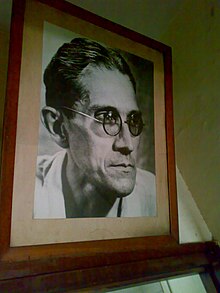
Between 1956 and 1958, CPI established a three-storey building for PPH on 5E, M.M. Road of Delhi (now Rani Jhansi Road, Jhandewalan, Delhi). New Age Printing Press was established on the ground floor of this building, from where the "Janyug (means People's Age in Hindi)" and English newspaper "New Age" were printed. People's Publishing House was established on the second floor of this building. This building was named as "R. Palme Dutt" Bhawan, after noted British Communist leader, who visited India in 1946. On the second floor stairs of this building hung, the portrait of RPD, that was clicked by CPI in 1946 during his India visit. This photograph was there until very recently, and perhaps is now shifted to CPI headquarters at Ajoy Bhawan in Delhi.
By 1948, PPH was publishing and selling the books of Hindi author Rahul Sankrityayan all over India, despite the fact that he had resigned from Communist Party's membership. Hindi author Ram Vilas Sharma had started his literary career at PPH. In 1950s, Noted Hindi writer Nirmal Verma and veteran leader of Communist Party of India (Marxist) Ram Aasre were associated with PPH and had translated Soviet Books for the publishing house. Nirmal Verma translated Alexander Fadeyev's "पराजय (Parajay, The Rout)" in Hindi, He also translated Alexander Kuprin’s stories into Hindi. Ram Aasre, translated Maxim Gorky’s "साहित्यिक संस्मरण (Sahityik Sansmaran, Literary Portraits)" in Hindi. Narottam Nagar, translated "21 रूसी कहानियाँ (21 Russian Stories)" and Mikhail Saltykov-Shchedrin "Stories (titled as नेकी और बदी / Neki Aur Badi)" into Hindi.
In the months leading to the collapse of Soviet Union, there was a period of political instability in USSR. In those days PPH stopped getting new supplies of Marxist literature because of policy change in the USSR. When Indian readers feared that Russian books were going to disappear forever, they rushed to PPH bookstores, even to buy entire volumes of Marx and Lenin. After the dissolution of the Soviet Union in 1991, Russians kept on supplying books to PPH till 1995. PPH continued selling these books till early 2000's from huge stockpiles that it purchased during the Soviet era. For importing Soviet Books into India, PPH directly dealt with Soviet Exports Agency for Books and Periodicals – Mezhdunarodnaya Kniga (MK).
Soviet literature and India

On the eve of India's independence in 1946, Jawaharlal Nehru had sent K.P.S. Menon the then ambassador of India in China, to Paris. His task was to meet Soviet Foreign Minister Vyacheslav Molotov on the outskirts of Paris Peace Conference. Menon gave Molotov a letter from Nehru, in which he wished to establish diplomatic relations with the USSR. In April 1947, a few months before Indian independence, Soviet Union and India formally established diplomatic ties.
However much before these formal establishment in ties, literature had served as the first contact between the two countries. After the Communist Party of India was legalised by the British in 1942, it started to disseminate Soviet Literature through its publishing house PPH. In the same year, a magazine "Soviet Union News" started publication from Delhi. Apart from news from USSR (published under a column called "TASS") it contained stories by Russian Authors, and other cultural stories. Its price was 3 Annas, and it mentioned a "Post Box" in Delhi as its registered address. Much later in the year 1947 after the establishment of Soviet Embassy in India, Representative of TASS in India revived the publication of a 1930s era Soviet Magazine called "Soviet Land".This magazine resembled much like "Soviet Union News". It was also published in 13 other Indian languages including Hindi and Bengali. The only difference it had with its 1930's manifestation was that, it was entirely published and printed by TASS in Delhi, India, instead of USSR.
Impact
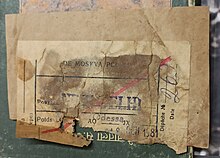
A large number of Soviet Books started appearing on the shelves of Indian readers. Many people who grew up in the India of the 1970s and 1980s to 1990s are still nostalgic about these books with their colourful pages full of art and cartoons.
Not only in the field of Literature and Children's Literature, but heavily subsidised Soviet Text Books related to Science and Technology had founded their base among the students of the Indian Universities, who considered them much cheaper compared to American or British Text Books. Through PPH, Soviet Union had supplied these technical text books to Indian students.
References
- ^ Dubey, Radhe (2006). Kahani Ek Naye Mazmoon Ki (Story of a New Idea. Hindi). B-131, Sadatpur, Po. Gokalpuri, Delhi – 110094: Lok Prakashan Griha. p. 14.
{{cite book}}: CS1 maint: location (link) - "Ministry of Corporate Affairs Filings of PPH, ZaubaCorp". Retrieved 23 March 2024.
- "People's Publishing House, Contact Us". PPH. Retrieved 4 April 2024.
- "People's Book House Patna, Corporate Filing with Ministry of Corporate Affairs". Economic Times. Times of India Group. Retrieved 4 April 2024.
- "How Mumbai's Leftist bookshop and printing press are keeping the red flag fluttering". Scroll India. 19 March 2016.
- "CPI filings with Election Commission of India, Page 7" (PDF). Election Commission of India. ECI. Retrieved 5 April 2024.
- "RPPH, Corporate filings with Ministry of Corporate Affairs". Zaubacorp. Retrieved 4 April 2024.
- Dutt, R. Palme (1955). India Today and Tomorrow (PDF). New Age Printing Press (PPH) Delhi India: Lawrence and Wishart London. p. 6. Retrieved 27 March 2024.
- Thi Binh, Nguyen (August 2014). Family, Friends and Country. 5E, Rani Jhansi Road, New Delhi: People's Publishing House. Retrieved 27 March 2024.
{{cite book}}: CS1 maint: location (link) - Tolstoy, Lev (1987). Yuddh Aur Shanti (War and Peace, Hindi). Title Page, Publishers name. Raduga Publishers Moscow, People's Publishing House Delhi, Rajasthan People's Publishing House Jaipur. Retrieved 5 April 2024.
- ^ "End Page, Distributors list". International Literature (4). Moscow, Soviet Union: The State Literary Publishing House. 1943.
- ^ "People’s+Publishing+House" "End Page (Distributors List)". New Times. Trud Newspaper, Moscow. February 1945. Retrieved 4 April 2024.
- ^ "Bourgeois Pleasure : Delhi's Soviet era bookstore". The Patriot. United India Periodicals. 22 November 2022. Retrieved 22 March 2024.
- ^ Syomin, G.A., ed. (26 February 1981). "Distributors of Soviet Books and Periodicals in India". Books from USSR, Soviet Review. XVIII (10). 25, Barakhamba Road, New Delhi: N.M. Fedin for the Information Department of the USSR Embassy in India: 41. Retrieved 8 April 2024.
{{cite journal}}: CS1 maint: location (link) - Karat, Brinda (2019). 100 Years of the Communist Party. Communist Party of India (Marxist). pp. 5, 13, 29. Retrieved 11 April 2024.
- Adhikari, G. (1944). From Peace Front to People's War (II ed.). Sandhurst Road, Bombay 4: People's Publishing House. p. 347. Retrieved 11 April 2024.
{{cite book}}: CS1 maint: location (link) - Sundarayaa, P (February 1973). "Telangana People's Armed Struggle, 1946–1951. Part One: Historical Setting". Social Scientist. 1 (7): 15. doi:10.2307/3516269. JSTOR 3516269. Retrieved 11 April 2024.
- Karat, Brinda (2019). 100 Years of the Communist Party. Communist Party of India (Marxist). p. 42. Retrieved 25 March 2024.
- "Red Letter Days". Live Mint (Hindustan Times). Hindustan Times Group. 19 November 2010. Retrieved 22 March 2024.
- ^ "People's Publishing House, About Us". PPH. Retrieved 4 April 2024.
- Thesis on the organization and Structure of the communist Parties, adopted at the 3rd Congress of the Communist International in 1921, Together with the Statutes of the CI. People's Publishing House. 1921. Retrieved 12 April 2024.
- Communist Party Ke Sanghatan Ke Sindhant (in Hindi). People's Publishing House. 1921. Retrieved 12 April 2024.
- Verulam, Frank (1935). Imperialism and the People. People's Publishing House. Retrieved 12 April 2024.
- Torr, Dona (1939). From Imperialist War to People's War. People's Publishing House. Retrieved 12 April 2024.
- Urdhvareshe, Prabhakara (1997). "लाइनोटाइप" Khoye Hue Dina (Lost Days. Hindi). Sahitya Akademi. p. 103. ISBN 9788126002566. Retrieved 7 April 2024.
- Awasthi, Rekha (1978). Pragatiwad Aur Samanantar Sahitya (Progressiveness and Parallel Literature. Hindi.) (Ist ed.). New Delhi: Macmillan Publishers. p. 53.
- Urdhvareshe, Prabhakara (1997). Khoye Hue Dina (Lost Days. Hindi.). New Delhi: Sahitya Akademi. p. 121. ISBN 9788126002566.
- Adhikari, G. (June 1944). From Peace Front to People's War (II ed.). Raj Bhuvan, Sandhurst Road, Bombay 4: People's Publishing House. Retrieved 4 April 2024.
{{cite book}}: CS1 maint: location (link) - Ali, Sharaf Athar (1942). Against Hitler – The Voice of Free Germany. People's Publishing House. Retrieved 12 April 2024.
- Minz, Prof. I (1943). The Army of the Soviet Union (End Page, Books List). 190 B, Khetwadi Main Road, Bombay – 4: People's Publishing House.
{{cite book}}: CS1 maint: location (link) - "National Book Agency, About Us". NBA. Retrieved 4 April 2024.
- "Books Received". The Indian Express. 31 May 1944. Retrieved 9 April 2024.
- "Books Received". The Indian Express. 8 June 1944. Retrieved 9 April 2024.
- Marx, Karl (November 1944). Historical Writings (Ist ed.). Raj Bhuvan, Sandhurst Road, Bombay 4: People's Publishing House. Retrieved 12 April 2024.
{{cite book}}: CS1 maint: location (link) - Marx, Engels (1945). Historical Writings, Volume II (Ist ed.). Raj Bhuvan, Sandhurst Road, Bombay 4: People's Publishing House. Retrieved 12 April 2024.
{{cite book}}: CS1 maint: location (link) - The History of the October Revolution. Raj Bhuvan, Sandhurst Road, Bombay 4: People's Publishing House. September 1944. Retrieved 12 April 2024.
{{cite book}}: CS1 maint: location (link) - ^ "People’s+Publishing+House" "Distributor's List". New Times Journal (2). 9 January 1947.
- "People’s+Publishing+House" "Distributor's List". Soviet Literature (1). Writer's Union of the USSR. January 1947. Retrieved 12 April 2024.
- "Prajasakti Book House, Contact Us". PSBH. Retrieved 12 April 2024.
- "Communist Party of India (Marxist) – Other Publicstions". CPI(M). 10 August 2009. Retrieved 4 April 2024.
- Sundarayya, P. (April 1973). "Telangana People's Armed Struggle, 1946–51. Part Three: Pitted against the Indian Army". Social Scientist. 1 (9): 30, 35, 43. doi:10.2307/3516496. JSTOR 3516496. Retrieved 11 April 2024.
- Sainath, P. (16 November 2023). "N. Sankaraiah: One Hundred Years a Revolutionary". The Wire. Retrieved 11 April 2024.
- Dubey, Radhe (2006). Kahani Ek Naye Mazmoon Ki (Story of a New Idea. Hindi). B-131, Sadatpur, Po. Gokalpuri, New Delhi – 110094: Lok Prakashan Griha. p. 23.
{{cite book}}: CS1 maint: location (link) - Dubey, Radhe (2006). Kahani Ek Naye Mazmoon Ki (Story of a New Idea. Hindi). B-131, Sadatpur, Po. Gokalpuri, New Delhi – 110094: Lok Prakashan Griha. p. 31.
{{cite book}}: CS1 maint: location (link) - ^ Gupt, Anand (2007). Delhi ki Communist Party ka Itihaas (History of Communist Party of Delhi. Hindi). Urdu Bazar, Jama Masjid, Delhi – 110006: Communist Party of India. p. 281.
{{cite book}}: CS1 maint: location (link) - "Bombay Police Raid Communist Party HQ". The Indian Express. Press Trust of India. 9 August 1950. Retrieved 9 April 2024.
- Dubey, Radhe (2006). Kahani Ek Naye Mazmoon Ki (Story of a New Idea. Hindi). B-131, Sadatpur, Po. Gokalpuri, New Delhi – 110094: Lok Prakashan Griha. p. 28.
{{cite book}}: CS1 maint: location (link) - Dubey, Radhe (2006). Kahani Ek Naye Mazmoon Ki (Story of a New Idea. Hindi). B-131, Sadatpur, Po. Gokalpuri, New Delhi – 110094: Lok Prakashan Griha. p. 30.
{{cite book}}: CS1 maint: location (link) - "Delhi+Book+Centre" "Distributors List". New Times Journal (36). Trud Newspaper, Moscow, USSR. 1953.
- Dubey, Radhe (2006). Kahani Ek Naye Mazmoon Ki (Story of a New Idea. Hindi). B-131, Sadatpur, Po. Gokalpuri, New Delhi – 110094: Lok Prakashan Griha. p. 35.
{{cite book}}: CS1 maint: location (link) - Ghosh, Ajoy, ed. (October 1956). "End Page, Address Section". New Age. V (10). 7/4 Asaf Ali Road, New Delhi: Communist Party of India.
{{cite journal}}: CS1 maint: location (link) - Ranadive, BT, ed. (October 1958). "End Page, Address Section". New Age. VII (10). 5, MM Road, New Delhi: Communist Party of India.
{{cite journal}}: CS1 maint: location (link) - Gupt, Anand (2007). Delhi ki Communist Party ka Itihaas (History of Communist Party of Delhi. Hindi). Urdu Bazar, Jama Masjid, Delhi – 110006: Communist Party of India, Delhi State Council. p. 70.
{{cite book}}: CS1 maint: location (link) - "Hindi Sammelan President Leaves Communist Party". The Indian Express. 11 January 1948. Retrieved 9 April 2024.
- Sharma, Ram Vilas (1996). Apni Dharti Apne Log, Vol 1. Kitab ghar Prakashan. p. 167. ISBN 8170163056.
- Kuprin, Alexander (April 1958). Kuprin Ki Kahaniyan (Ist ed.). MM Road, New Delhi: People's Publishing House. Retrieved 23 March 2024.
- Fadeyev, Alexander (1958). Parajay (Ist ed.). M.M. Road, Delhi: People's Publishing House.
- Gorky, Maxim (May 1958). Sahityik Sansmaran (Literary Portraits) (PDF). MM Road, New Delhi: People's Publishing House. Retrieved 23 March 2024.
- Ikkis Roosi Kahaniyan (21 Russian Stories). Title Page, Translator's Name (Ist ed.). Asaf Ali Road, New Delhi – 1: People's Publishing House. December 1956.
{{cite book}}: CS1 maint: location (link) - Schedrin, Saltykov (April 1958). Neki Aur Badi tatha Anya Kahaniyan (in Hindi) (Ist ed.). MM Road, Delhi 1: People's Publishing House.
{{cite book}}: CS1 maint: location (link) - Naqvi, Jawed (2 October 1991). "Marx and Lenin Sell Cheap in India, But Readers Scurry for More". Stabroek News, Georgetown Guyana. Reuters. Retrieved 9 April 2024.
- "Russian books live on in city bookstore". DNA India. Zee Media Corporation. Retrieved 23 March 2024.
- Mohanty, Prof. Arun (21 April 2011). "Saga of India Russia Diplomatic Ties". Russia Beyond The Headlines RBTH. Retrieved 24 March 2024.
- "How India Russia Relations overcame the bitterness of Stalin Years". India Today. India Today Group. 29 December 2023. Retrieved 24 March 2024.
- "Soviet Union News". Soviet Union News. 2 (1). P.O. Box. No. 166 Delhi: Editor, S.U.N. January 1943.
{{cite journal}}: CS1 maint: location (link) - "Soviet Land" (PDF). Soviet Land. 4 (22). 25 November 1951.
- "These Folk Tales Record a Unique Past Between South Asia and Soviet Russia". Daily Star. 10 February 2023. Retrieved 14 April 2024.
- Baratov, Boris, ed. (April 1938). "Soviet Land". Soviet Land. 8 (4). 4, Kuznetsky Most, Moscow, USSR: United Magazines and Newspapers,USSR: 50.
{{cite journal}}: CS1 maint: location (link) - Bhuyan, Avantika (25 September 2021). "Reviving the Nostalgia around Soviet era Children's Books". Mint Lifestyle. Hindustan Times Group. Retrieved 9 April 2024.
- Roy, Nilanjana S (24 December 2015). "Why a generation of Indian Writers, Publishers and Booklovers grew up reading Russian Books". Scroll India. Retrieved 9 April 2024.
- "Soviets Undersell Textbooks in India". The Blade, Toledo, Ohio. United Press International. 28 November 1963. Retrieved 9 April 2024.